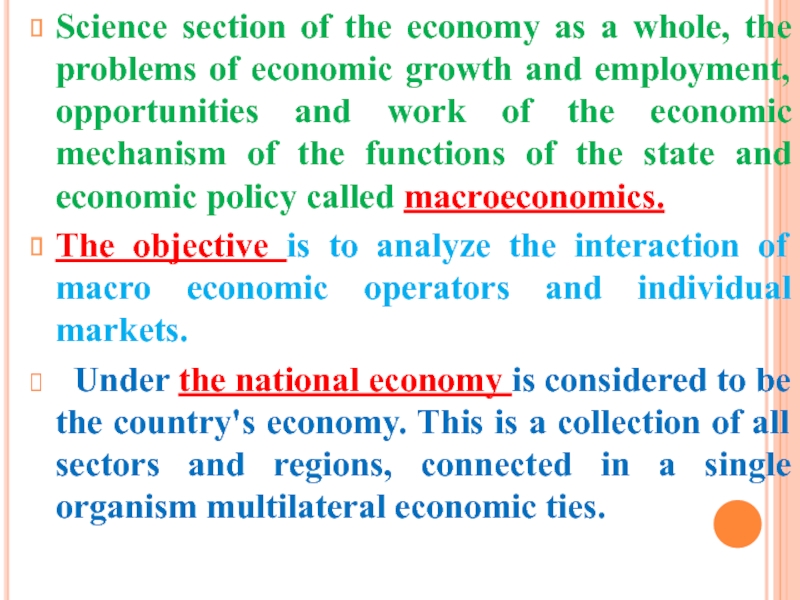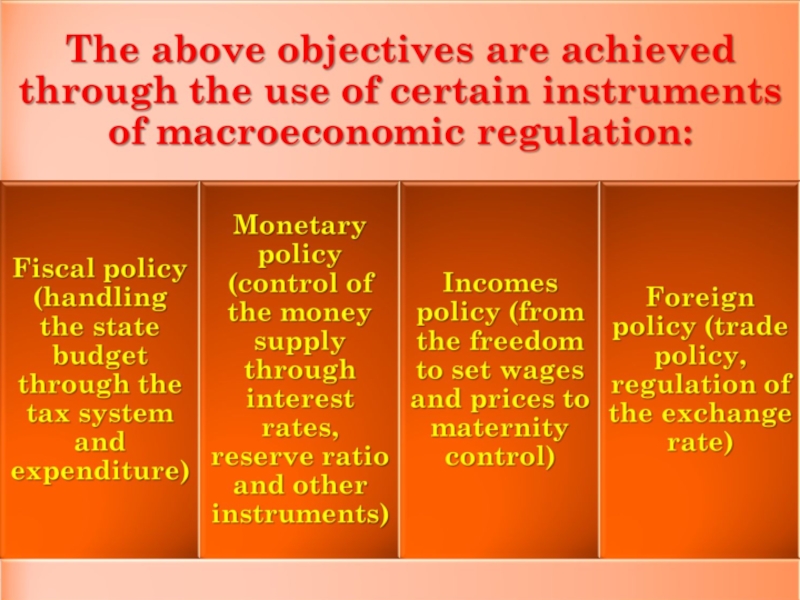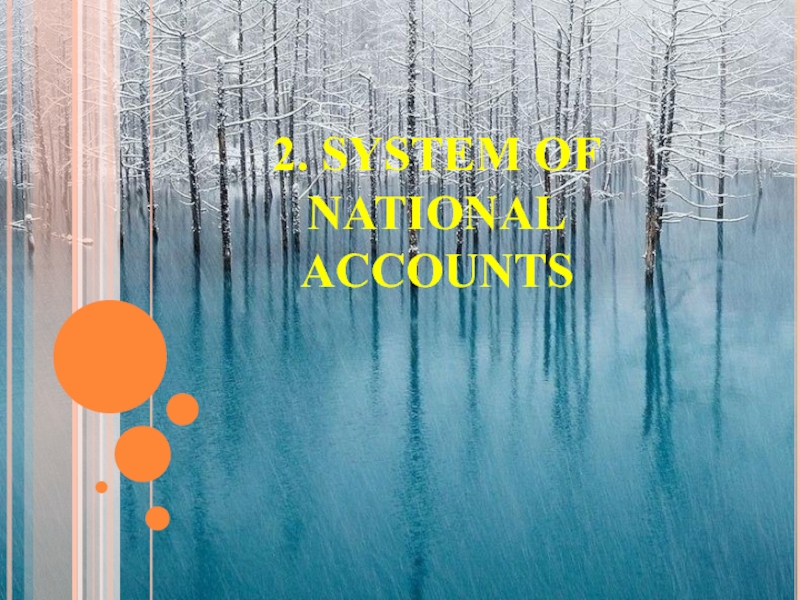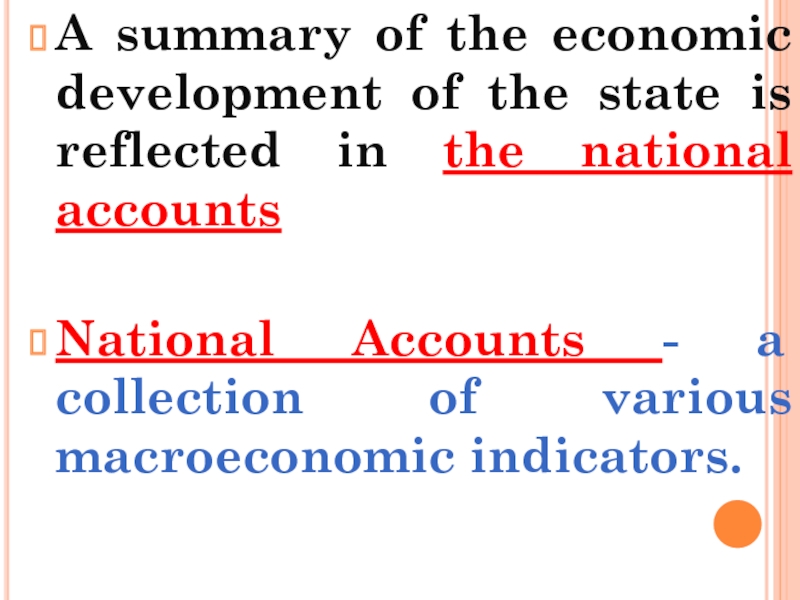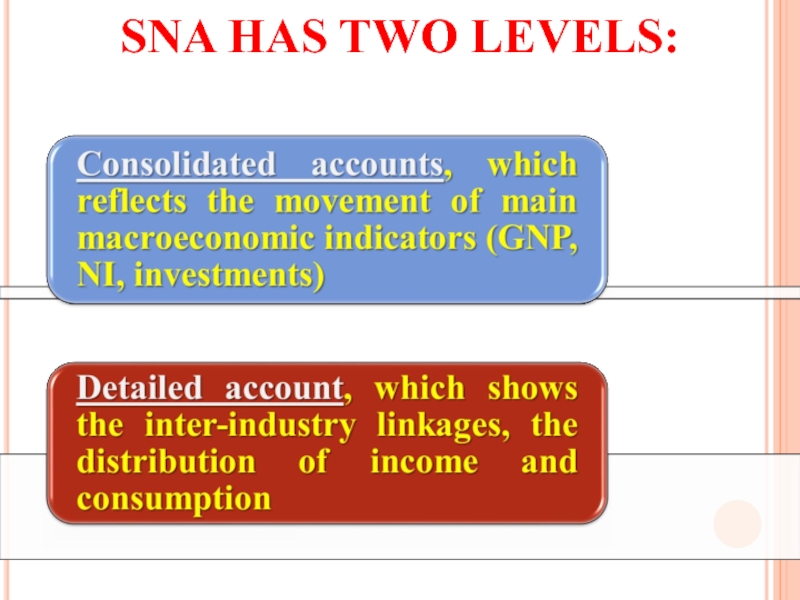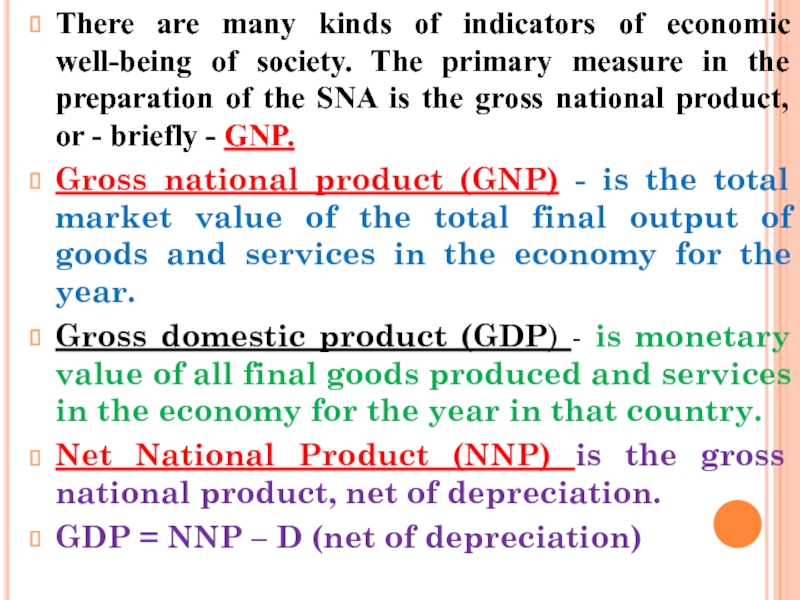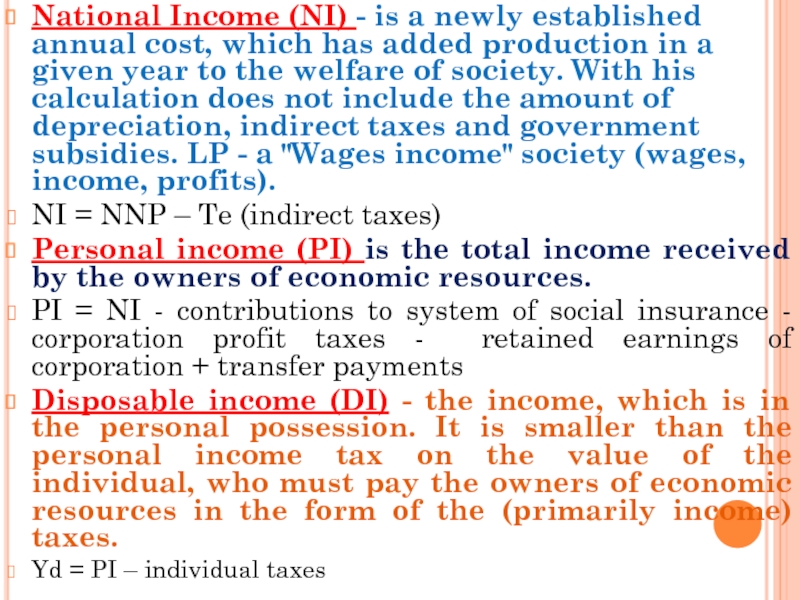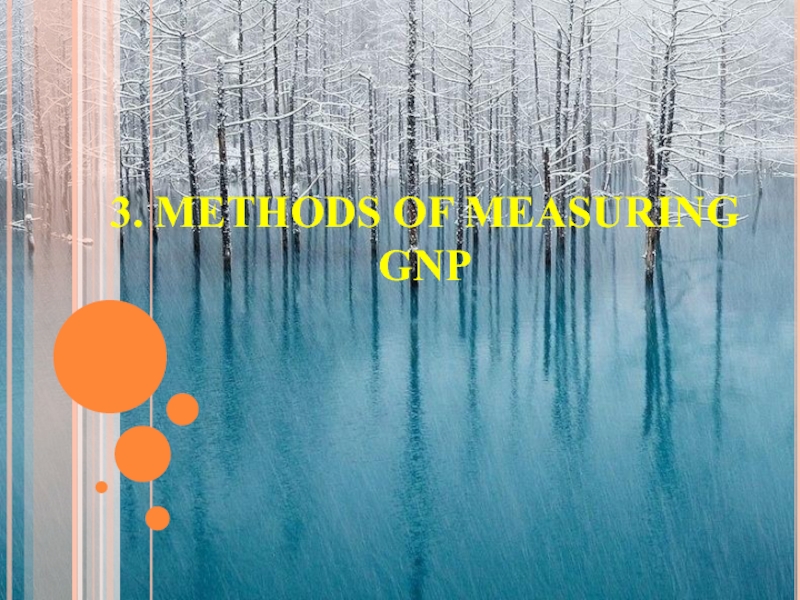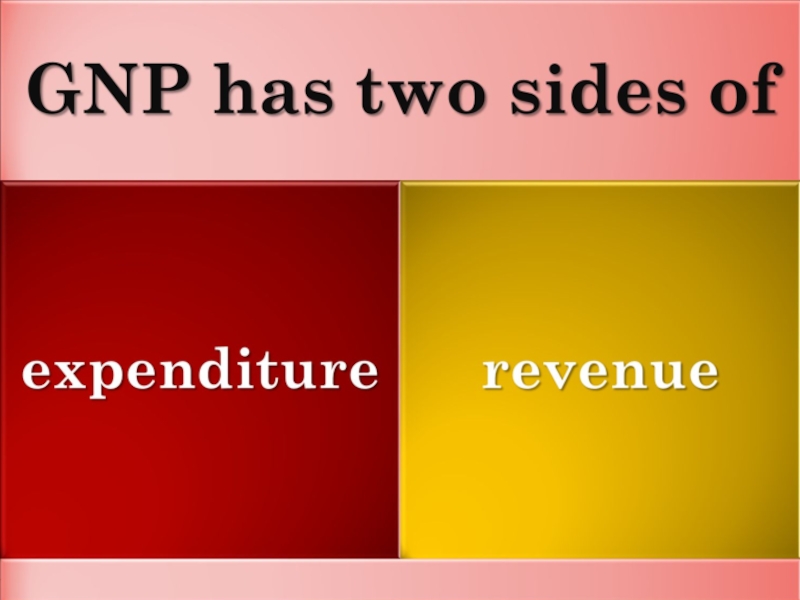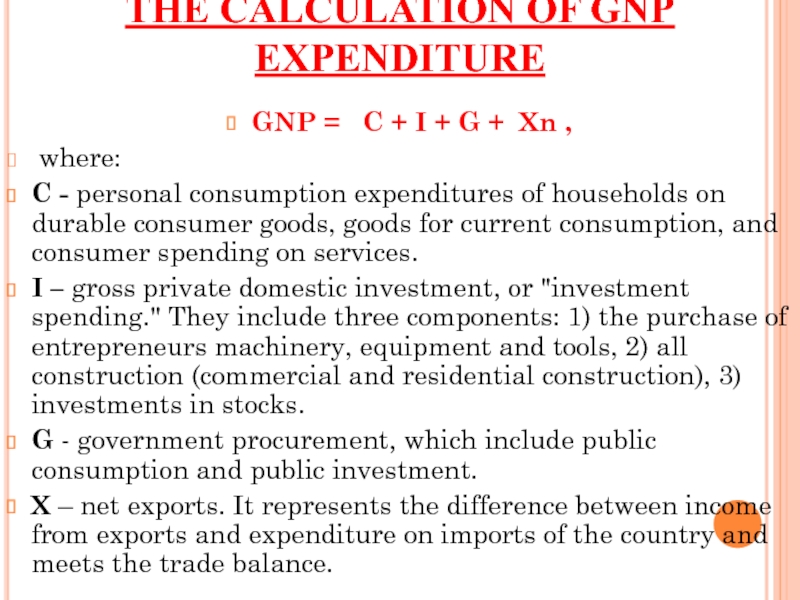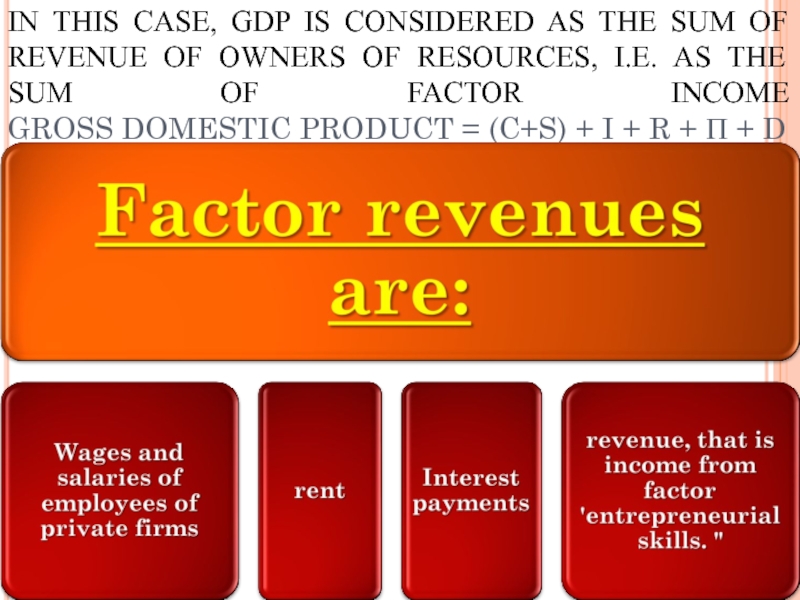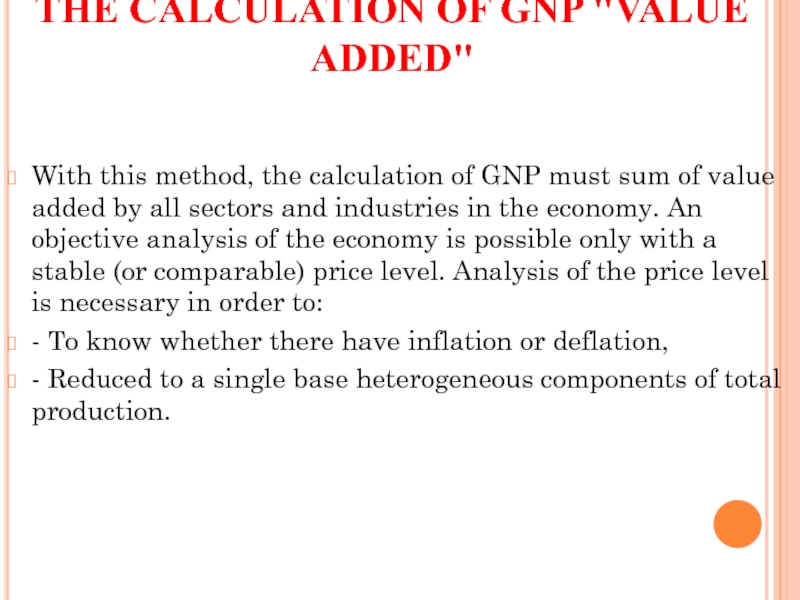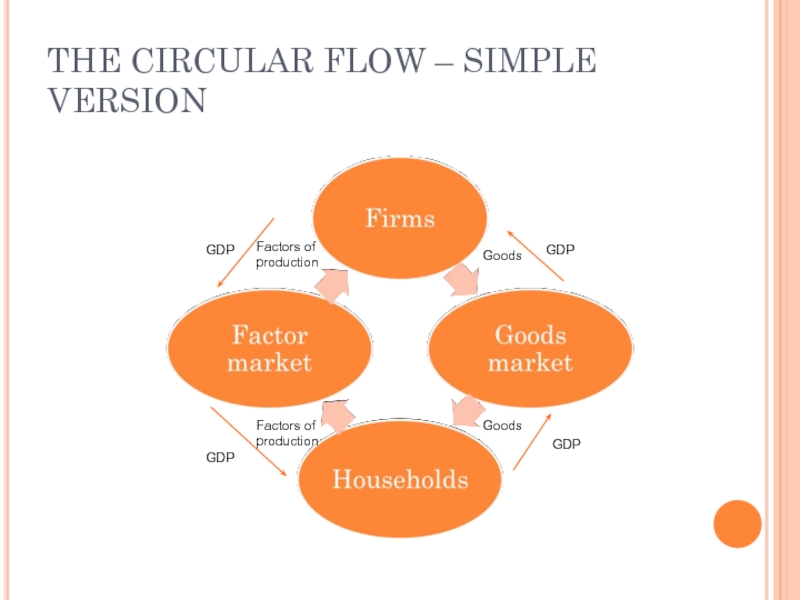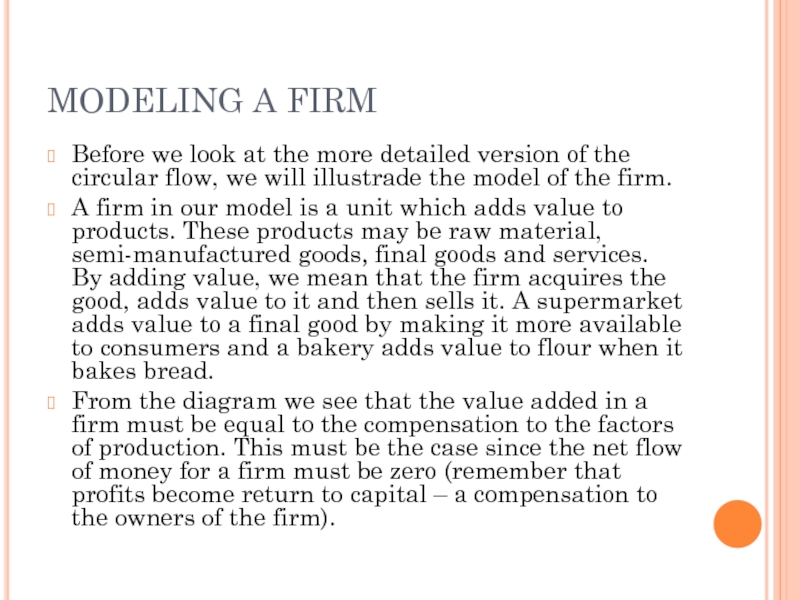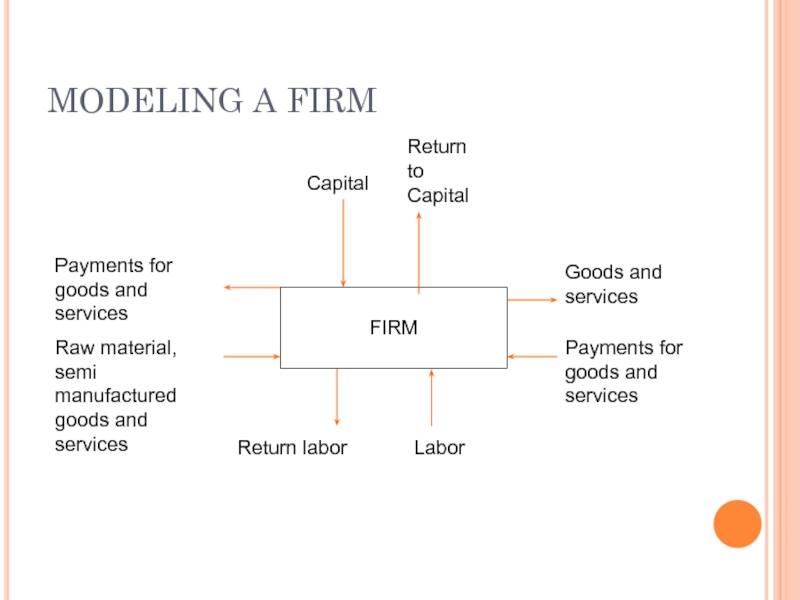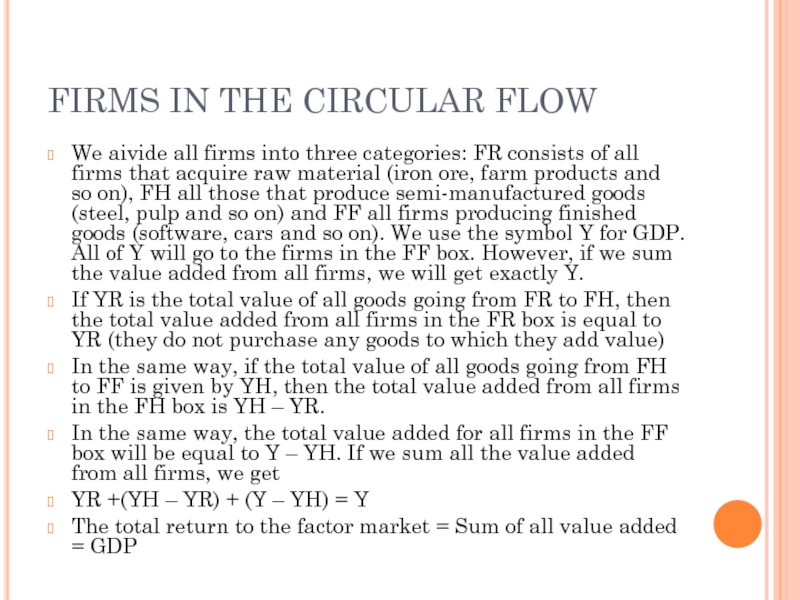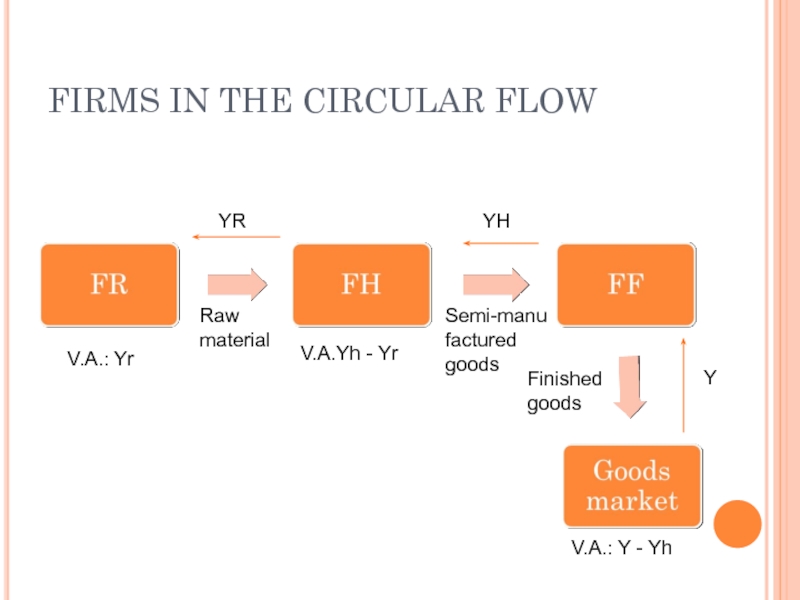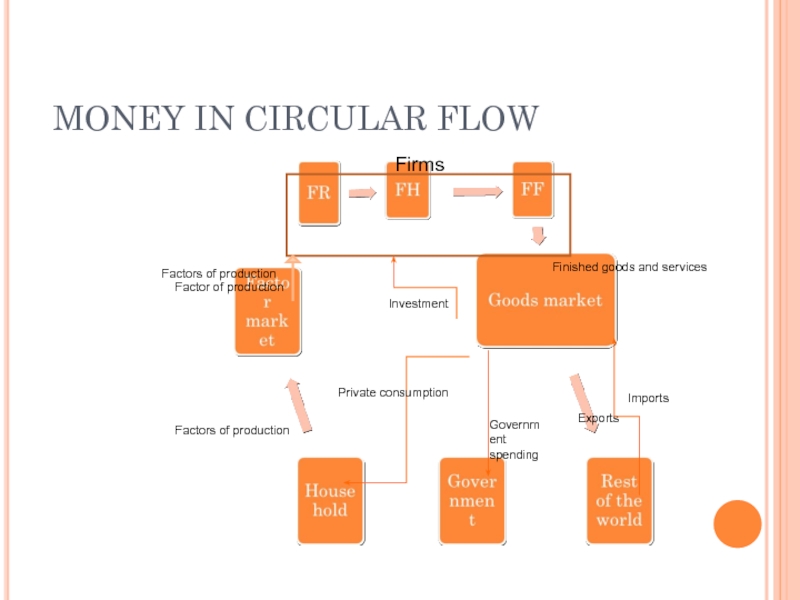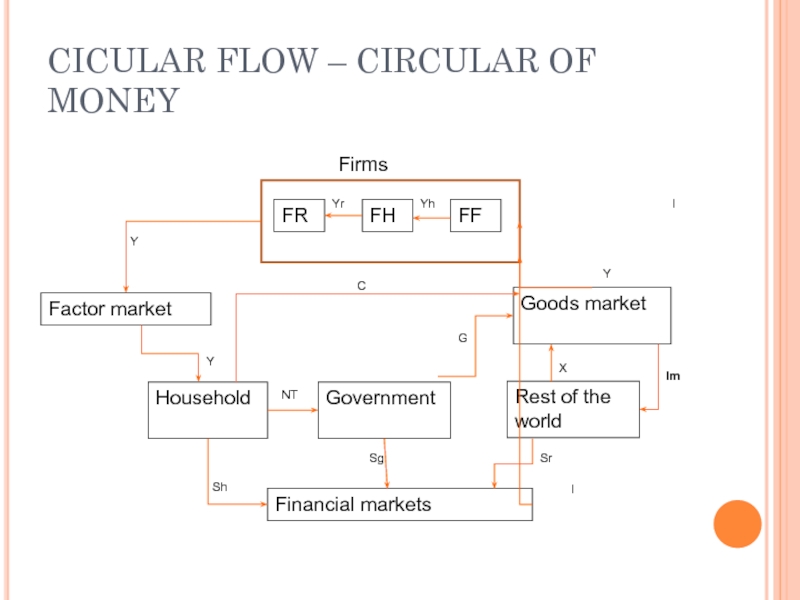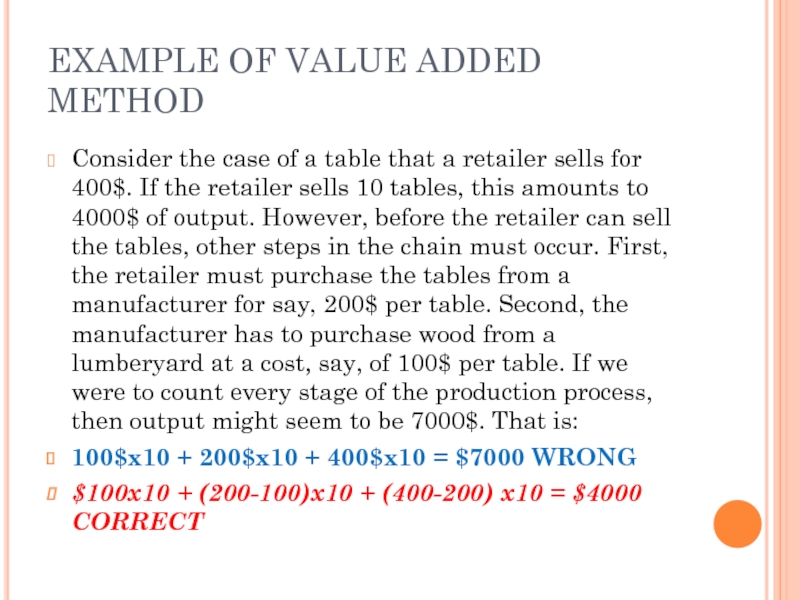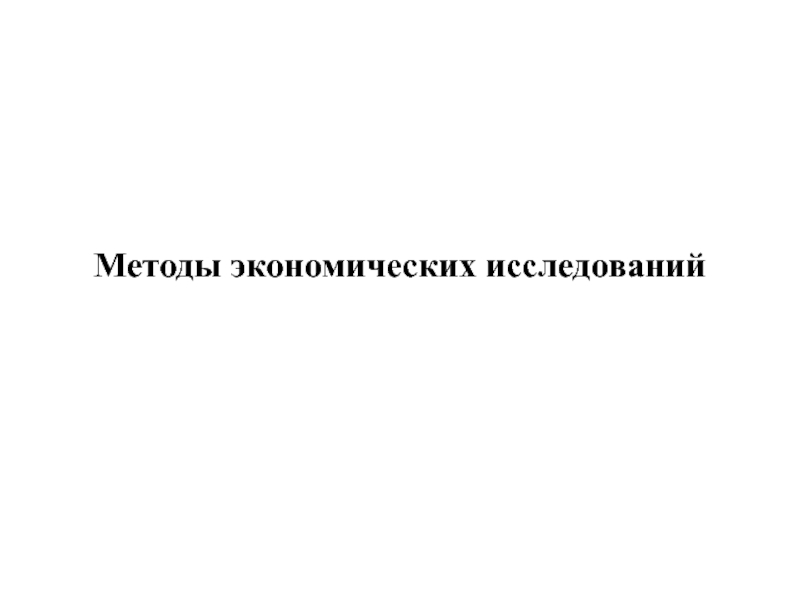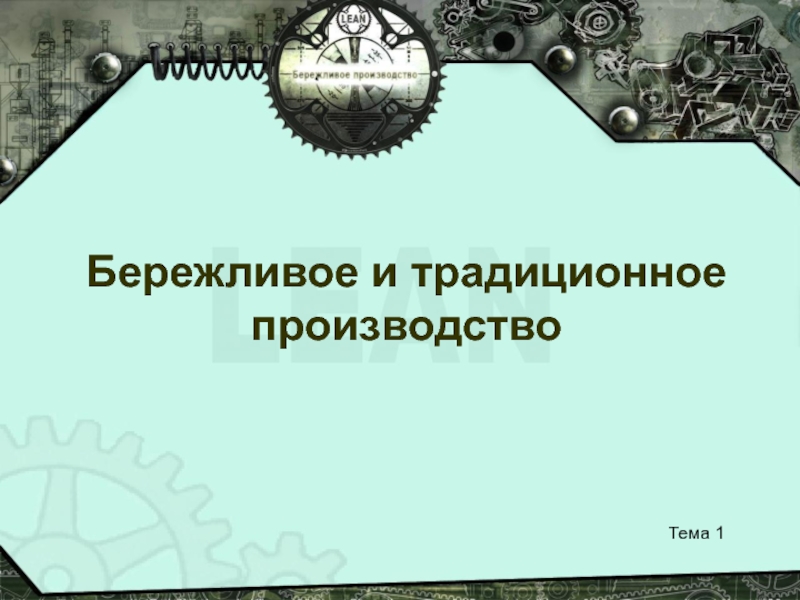- Главная
- Разное
- Дизайн
- Бизнес и предпринимательство
- Аналитика
- Образование
- Развлечения
- Красота и здоровье
- Финансы
- Государство
- Путешествия
- Спорт
- Недвижимость
- Армия
- Графика
- Культурология
- Еда и кулинария
- Лингвистика
- Английский язык
- Астрономия
- Алгебра
- Биология
- География
- Детские презентации
- Информатика
- История
- Литература
- Маркетинг
- Математика
- Медицина
- Менеджмент
- Музыка
- МХК
- Немецкий язык
- ОБЖ
- Обществознание
- Окружающий мир
- Педагогика
- Русский язык
- Технология
- Физика
- Философия
- Химия
- Шаблоны, картинки для презентаций
- Экология
- Экономика
- Юриспруденция
The national economy as a system презентация
Содержание
- 1. The national economy as a system
- 2. 1.NATIONAL ECONOMY AS A SYSTEM
- 3. Science section of the economy as a
- 5. 2. SYSTEM OF NATIONAL ACCOUNTS
- 6. A summary of the economic development of
- 7. SNA HAS TWO LEVELS:
- 8. There are many kinds of indicators of
- 9. National Income (NI) - is a newly
- 10. 3. METHODS OF MEASURING GNP
- 12. THE CALCULATION OF GNP EXPENDITURE GNP
- 13. CALCULATING GNP BY REVENUE IN THIS CASE,
- 14. THE CALCULATION OF GNP "VALUE ADDED"
- 15. THE CIRCULAR FLOW – SIMPLE VERSION Factors
- 16. MODELING A FIRM Before we look at
- 17. MODELING A FIRM FIRM Capital
- 18. FIRMS IN THE CIRCULAR FLOW We aivide
- 19. FIRMS IN THE CIRCULAR FLOW YR YH
- 20. MONEY IN CIRCULAR FLOW Firms Finished
- 21. CICULAR FLOW – CIRCULAR OF MONEY
- 22. EXAMPLE OF VALUE ADDED METHOD Consider the
Слайд 3Science section of the economy as a whole, the problems of
economic growth and employment, opportunities and work of the economic mechanism of the functions of the state and economic policy called macroeconomics.
The objective is to analyze the interaction of macro economic operators and individual markets.
Under the national economy is considered to be the country's economy. This is a collection of all sectors and regions, connected in a single organism multilateral economic ties.
The objective is to analyze the interaction of macro economic operators and individual markets.
Under the national economy is considered to be the country's economy. This is a collection of all sectors and regions, connected in a single organism multilateral economic ties.
Слайд 6A summary of the economic development of the state is reflected
in the national accounts
National Accounts - a collection of various macroeconomic indicators.
National Accounts - a collection of various macroeconomic indicators.
Слайд 8There are many kinds of indicators of economic well-being of society.
The primary measure in the preparation of the SNA is the gross national product, or - briefly - GNP.
Gross national product (GNP) - is the total market value of the total final output of goods and services in the economy for the year.
Gross domestic product (GDP) - is monetary value of all final goods produced and services in the economy for the year in that country.
Net National Product (NNP) is the gross national product, net of depreciation.
GDP = NNP – D (net of depreciation)
Gross national product (GNP) - is the total market value of the total final output of goods and services in the economy for the year.
Gross domestic product (GDP) - is monetary value of all final goods produced and services in the economy for the year in that country.
Net National Product (NNP) is the gross national product, net of depreciation.
GDP = NNP – D (net of depreciation)
Слайд 9National Income (NI) - is a newly established annual cost, which
has added production in a given year to the welfare of society. With his calculation does not include the amount of depreciation, indirect taxes and government subsidies. LP - a "Wages income" society (wages, income, profits).
NI = NNP – Te (indirect taxes)
Personal income (PI) is the total income received by the owners of economic resources.
PI = NI - contributions to system of social insurance - corporation profit taxes - retained earnings of corporation + transfer payments
Disposable income (DI) - the income, which is in the personal possession. It is smaller than the personal income tax on the value of the individual, who must pay the owners of economic resources in the form of the (primarily income) taxes.
Yd = PI – individual taxes
NI = NNP – Te (indirect taxes)
Personal income (PI) is the total income received by the owners of economic resources.
PI = NI - contributions to system of social insurance - corporation profit taxes - retained earnings of corporation + transfer payments
Disposable income (DI) - the income, which is in the personal possession. It is smaller than the personal income tax on the value of the individual, who must pay the owners of economic resources in the form of the (primarily income) taxes.
Yd = PI – individual taxes
Слайд 12THE CALCULATION OF GNP EXPENDITURE
GNP = C + I +
G + Xn ,
where:
C - personal consumption expenditures of households on durable consumer goods, goods for current consumption, and consumer spending on services.
I – gross private domestic investment, or "investment spending." They include three components: 1) the purchase of entrepreneurs machinery, equipment and tools, 2) all construction (commercial and residential construction), 3) investments in stocks.
G - government procurement, which include public consumption and public investment.
X – net exports. It represents the difference between income from exports and expenditure on imports of the country and meets the trade balance.
where:
C - personal consumption expenditures of households on durable consumer goods, goods for current consumption, and consumer spending on services.
I – gross private domestic investment, or "investment spending." They include three components: 1) the purchase of entrepreneurs machinery, equipment and tools, 2) all construction (commercial and residential construction), 3) investments in stocks.
G - government procurement, which include public consumption and public investment.
X – net exports. It represents the difference between income from exports and expenditure on imports of the country and meets the trade balance.
Слайд 13CALCULATING GNP BY REVENUE IN THIS CASE, GDP IS CONSIDERED AS THE
SUM OF REVENUE OF OWNERS OF RESOURCES, I.E. AS THE SUM OF FACTOR INCOME
GROSS DOMESTIC PRODUCT = (C+S) + I + R + Π + D
Слайд 14THE CALCULATION OF GNP "VALUE ADDED"
With this method, the calculation of
GNP must sum of value added by all sectors and industries in the economy. An objective analysis of the economy is possible only with a stable (or comparable) price level. Analysis of the price level is necessary in order to:
- To know whether there have inflation or deflation,
- Reduced to a single base heterogeneous components of total production.
- To know whether there have inflation or deflation,
- Reduced to a single base heterogeneous components of total production.
Слайд 15THE CIRCULAR FLOW – SIMPLE VERSION
Factors of production
Factors of production
Goods
Goods
GDP
GDP
GDP
GDP
Слайд 16MODELING A FIRM
Before we look at the more detailed version of
the circular flow, we will illustrade the model of the firm.
A firm in our model is a unit which adds value to products. These products may be raw material, semi-manufactured goods, final goods and services. By adding value, we mean that the firm acquires the good, adds value to it and then sells it. A supermarket adds value to a final good by making it more available to consumers and a bakery adds value to flour when it bakes bread.
From the diagram we see that the value added in a firm must be equal to the compensation to the factors of production. This must be the case since the net flow of money for a firm must be zero (remember that profits become return to capital – a compensation to the owners of the firm).
A firm in our model is a unit which adds value to products. These products may be raw material, semi-manufactured goods, final goods and services. By adding value, we mean that the firm acquires the good, adds value to it and then sells it. A supermarket adds value to a final good by making it more available to consumers and a bakery adds value to flour when it bakes bread.
From the diagram we see that the value added in a firm must be equal to the compensation to the factors of production. This must be the case since the net flow of money for a firm must be zero (remember that profits become return to capital – a compensation to the owners of the firm).
Слайд 17MODELING A FIRM
FIRM
Capital
Return to Capital
Payments for goods and services
Raw material, semi
manufactured goods and services
Return labor
Labor
Goods and services
Payments for goods and services
Слайд 18FIRMS IN THE CIRCULAR FLOW
We aivide all firms into three categories:
FR consists of all firms that acquire raw material (iron ore, farm products and so on), FH all those that produce semi-manufactured goods (steel, pulp and so on) and FF all firms producing finished goods (software, cars and so on). We use the symbol Y for GDP. All of Y will go to the firms in the FF box. However, if we sum the value added from all firms, we will get exactly Y.
If YR is the total value of all goods going from FR to FH, then the total value added from all firms in the FR box is equal to YR (they do not purchase any goods to which they add value)
In the same way, if the total value of all goods going from FH to FF is given by YH, then the total value added from all firms in the FH box is YH – YR.
In the same way, the total value added for all firms in the FF box will be equal to Y – YH. If we sum all the value added from all firms, we get
YR +(YH – YR) + (Y – YH) = Y
The total return to the factor market = Sum of all value added = GDP
If YR is the total value of all goods going from FR to FH, then the total value added from all firms in the FR box is equal to YR (they do not purchase any goods to which they add value)
In the same way, if the total value of all goods going from FH to FF is given by YH, then the total value added from all firms in the FH box is YH – YR.
In the same way, the total value added for all firms in the FF box will be equal to Y – YH. If we sum all the value added from all firms, we get
YR +(YH – YR) + (Y – YH) = Y
The total return to the factor market = Sum of all value added = GDP
Слайд 19FIRMS IN THE CIRCULAR FLOW
YR
YH
Y
Raw material
Semi-manufactured goods
V.A.: Yr
V.A.Yh - Yr
Finished goods
V.A.:
Y - Yh
Слайд 20MONEY IN CIRCULAR FLOW
Firms
Finished goods and services
Exports
Imports
Government spending
Private consumption
Investment
Factors
of production
Factors of production
Factor of production
Слайд 21CICULAR FLOW – CIRCULAR OF MONEY
FR
FH
FF
Goods market
Rest of the world
Government
Household
Factor
market
Financial markets
Yr
Yh
I
C
G
Y
NT
Sg
Y
Y
Sh
Sr
Im
X
I
Firms
Слайд 22EXAMPLE OF VALUE ADDED METHOD
Consider the case of a table that
a retailer sells for 400$. If the retailer sells 10 tables, this amounts to 4000$ of output. However, before the retailer can sell the tables, other steps in the chain must occur. First, the retailer must purchase the tables from a manufacturer for say, 200$ per table. Second, the manufacturer has to purchase wood from a lumberyard at a cost, say, of 100$ per table. If we were to count every stage of the production process, then output might seem to be 7000$. That is:
100$x10 + 200$x10 + 400$x10 = $7000 WRONG
$100x10 + (200-100)x10 + (400-200) x10 = $4000 CORRECT
100$x10 + 200$x10 + 400$x10 = $7000 WRONG
$100x10 + (200-100)x10 + (400-200) x10 = $4000 CORRECT


